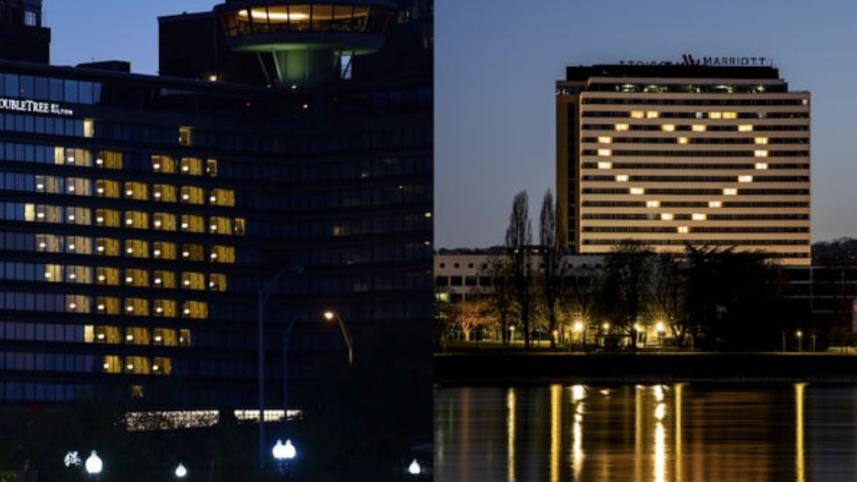Notes from a frontline healthcare worker in the UK

I continue to look after ventilated Covid patients in the Intensive Care Unit (ICU). We are dealing with the sickest patients in the hospital. Last night I heard the most dreadful, heart breaking news that the first Bangladeshi doctor has died in London after fighting for his life for two weeks on a ventilator. He is Dr Abdul Mabud Chowdhury Faisal. He was a consultant urologist and working in the NHS as a front line health worker. He wrote an open letter to the Prime Minister Mr Boris Johnson before he was attacked by the virus, urging the prime minister to protect the health care workers by providing them with PPEs and arranging for Covid tests for every health worker. At the time of writing this, Mr Johnson himself is admitted with Covid in a London hospital. This virus doesn't discriminate. I salute my fellow fighter Faisal and express my deepest sympathy to the bereaved family.
In my entire professional life, I have never seen such a severe damage to the lungs caused so quickly by a virus. The condition is called Acute Respiratory Distress Syndrome (ARDS) of lungs. With some patients, we are struggling to maintain the normal oxygen level in the blood despite delivering them with the highest possible oxygen concentration (100 percent) through a ventilator. We are using high PEEP (Positive End Expiratory Pressure) in our ventilators. We have been regularly "proning" (putting them in a face-down position, lying on the abdomen) and "de-proning" (having them lie on their back) our sedated and ventilated patients twice daily. We usually leave them in the "prone" position for 20-22 hours and the "de-prone" position for four to six hours. We found that these measures improve the oxygen level of the blood. But this is very hard work. We have trained and developed a designated proning and de-proning team among the theatre nurses. Now we encourage more patients to continue with Non-invasive Ventilation (NIV) and Continuous Positive Airway Pressure (CPAP) before they end up on a ventilator. Awake patients with CPAP/NIV can practice proning and de-proning on their own. Some other patients, meanwhile, are treated with hydroxychloroquine as well as a broad spectrum of antibiotics as a prophylactic measure.
An evidence of pulmonary micro-thrombosis formation was recently found in Covid-afflicted lungs following post-mortem studies in Spain, Italy and USA. We have started using a blood thinning Clexane injection (1.5 mg/ kg) to break up the clots in the lungs (for the sickest patients only). A young patient was transferred to ECMO (Extra Corporal Membrane Oxygenation) support at the nearest centre in Manchester recently. We couldn't maintain the patient's normal blood oxygen level despite aggressive ventilation for six days.
One of the most painful parts of this process is that we can't allow patients' relatives to come near their loved one, even if they are dying in our ICU. This is a safeguarding measure to stop the virus spreading to the relatives. It is stressful and emotionally upsetting, but we try to call the family members twice a day and update them about the patient's condition over the phone.
I would also like to talk about the local and national supports we are receiving here. The local hotels and restaurants in my town are sending food to our ICU every day. One garden centre sent flowers to all our staff last week. The local population have raised funds and sent water, drinks, chocolate, snacks, fruits and hand lotions to our unit. The medical director of the hospital and the senior executive members are visiting us frequently. These efforts are providing us with the most needed moral support. I received a phone call from the central BMA this morning. They are sending personal support packs (hand sanitizers, razor, tooth paste, soap, etc.) to our hospital.
Many of my friends and relatives (who happen to be Bangladeshi doctors), including my daughter and son-in-law, are working in the NHS as frontline health workers. I thank you all. I express my sincere thanks to the brave doctors, nurses and healthcare workers in Bangladesh—I am aware that they are risking their lives dealing with the Covid patients against all the odds and despite huge difficulties. I also sincerely congratulate all the voluntary organisations and volunteers in Bangladesh who have come forward to serve the nation in this difficult time. We shall overcome this crisis one day and build a healthy nation again.
Md Salimuzzaman Bhuiyan is General Secretary, Bangladesh Medical Society in the UK.
Email: mszaman57@yahoo.co.uk



 For all latest news, follow The Daily Star's Google News channel.
For all latest news, follow The Daily Star's Google News channel.
Comments